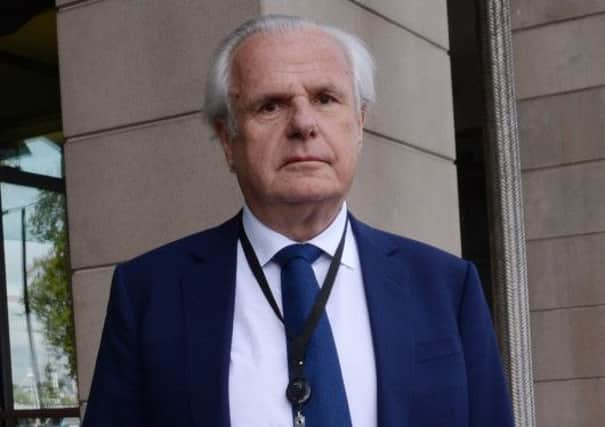Co-op mired in self-interest, says damning report


Lord Myners, who joined the Co-op’s board in December but quit last month, said he had found “a denial of responsibility, corrosive suspicion and protection of self-interest” in the 150-year-old mutual.
His 180-page report, which comes before the body’s Annual General Meeting (AGM) in Manchester on 17 May that will see a vote on reforming its structure, said the Co-op board was not up to the job of governing the customer-owned business.
Advertisement
Hide AdAdvertisement
Hide Ad“The governance structure we have at the moment has led to horrendous losses and a level of debt which is way above that of equivalent commercial competitors,” he wrote.
“That needs to be fixed. This board is not competent to perform the duties expected of it.” Board members include a plasterer, an engineer and a retired deputy head teacher.
The Co-op had to give up more than two-thirds of the shares in its self-styled “ethical” banking business to hedge funds last year when a £1.5 billion hole in its balance sheet was unearthed in the course of its unsuccessful bid for more than 600 Lloyds branches.
Euan Sutherland resigned as group chief executive earlier this year after details of his pay were leaked. He branded the organisation as “ungovernable”.
One of Lord Myners’s core proposals is for the 21-member board to be replaced by a slimmed-down body to take commercial decisions. He said that fewer than 40 people from the eight million members were eligible to sit on the board – but complained that not a single one has a commercial retail background.
Lord Myners said he had been “forthright in my language” because of “the extent of the denial I have met”, adding that he “believed in calling a spade a spade”.
The Co-op, whose businesses range from supermarkets to funeral parlours, recorded a £2.5bn loss for 2013 – the biggest in its history. It has also been embarrassed by its former bank chairman, the Reverend Paul Flowers, pleading guilty to possessing drugs.
Lord Myners said he did not know which way the vote would go at the AGM.
Advertisement
Hide AdAdvertisement
Hide AdBut he said in his report: “Radical decisions on governance structure need to be taken very soon – and with resolution – if the Co-op, as my mother knew it, is to be saved. The decision lies in the hands of the elected democrats. I have done all I can do.”
The report comes shortly after the Co-op was sharply criticised in a review by former Whitehall mandarin Sir Christopher Kelly into the near-collapse of the organisation.
Ursula Lidbetter, chairman of the parent company, said the board had made clear its “commitment to far-reaching and fundamental reform of our governance”. She added Lord Myners’s report was an invaluable contribution to this.
Lord Myners said he still thought there was a point to the Co-op being in banking, but only “if it’s a distinctive co-operative form of banking”.
But he said the Co-op was also involved in scandals such as PPI (payment protection insurance) mis-selling, showing “the ethical credentials were not so deeply embedded as some people assumed”.